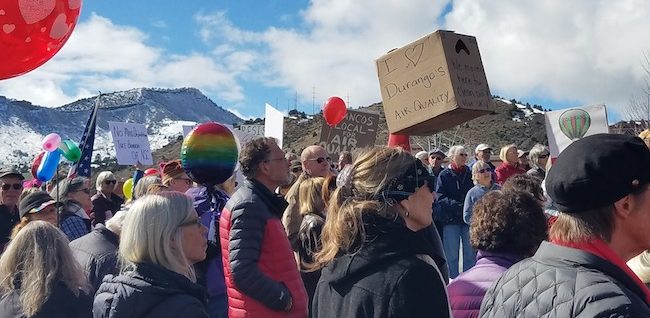Do you know the name George Lakoff? If you don’t, you should.
George Lakoff is a professor of cognitive science and linguistics at the University of California at Berkeley and an author of Don’t Think of an Elephant.
It’s a quick but critical read for anyone trying to decode the motivations of our elected officials.
Of the many concepts Lakoff advances, central to his thesis is the power of “framing.” The words we use in political dialogue are loaded. Each word is linked to a conceptual structure that carries with it deep associations and meaning.
As a result, how politicians frame issues is instructive regarding whose interests they are most concerned with serving.
Lakoff recently explored an example of this phenomenon in a blog post examining the use of the word “regulation” versus “protection.”
Here, let’s take a closer look at how framing works in the context of a timely issue: the attempt by some of our elected officials to use the Congressional Review Act to undo the Bureau of Land Management Methane and Waste Prevention Rule.
In November of 2016, the Department of Interior updated a 30-year-old set of rules that govern the venting, flaring and leaking of methane from oil and natural gas infrastructure.
Many folks will default to calling the rule a regulation. I default to calling the rule a community protection. Semantics? Far from it.
To think of the methane rule as a regulation is to think as a business. The rule does, in fact, regulate how businesses manage the extraction of public resources for private profit.
But here’s the thing. I am not an extraction business. I am a taxpayer who owns those public resources. I am a father concerned with the high levels of air pollution my family endures in the Four Corners. I’m a man who is concerned with the global and local impacts of climate change and am therefore ashamed that our community sits under the highest levels of methane pollution in the country.
A rule requiring businesses to be better stewards of public resources is, to me, an important community protection. It secures more tax and royalty revenues for our schools and infrastructure; it cleans up our air; it helps us address our climate impacts.
That is my primary frame for the CRA debate, but it’s not the only perspective I’m capable of understanding. Community protections created with little thought given to their business impact can backfire. But that’s not what is going on here.
The state of Colorado has already implemented similar protections that served as a model for the federal rule. When surveyed, 70 percent of industry representatives responded that the operational benefits of Colorado’s methane rules outweighed their implementation costs.
In the near future, U.S. Sen. Cory Gardner may cast the deciding vote on whether or not these federal methane rule protections are permanently rescinded. (U.S. Rep. Scott Tipton already voted to gut these protections, while U.S. Sen. Michael Bennet has been a vocal defender of the rule.)
While Gardner has not yet clarified which way he will vote, his language – his framing of the issue – is disappointing. Aside from attempting to throw shade on his constituents’ vocal support for the rule, much of his rhetoric reflects a single focus on business interest, apparently to the detriment of his noncorporate constituents.
Gardner has an extraordinary opportunity to lead his Senate colleagues by urging them to follow the common sense and proven compromise pioneered by his very own state. Call him. Remind Sen. Gardner that we elected him to be a leader of his peers, not a tool of dysfunctional partisan politics.
This content first published in The Durango Herald’s Thinking Green Column here.


